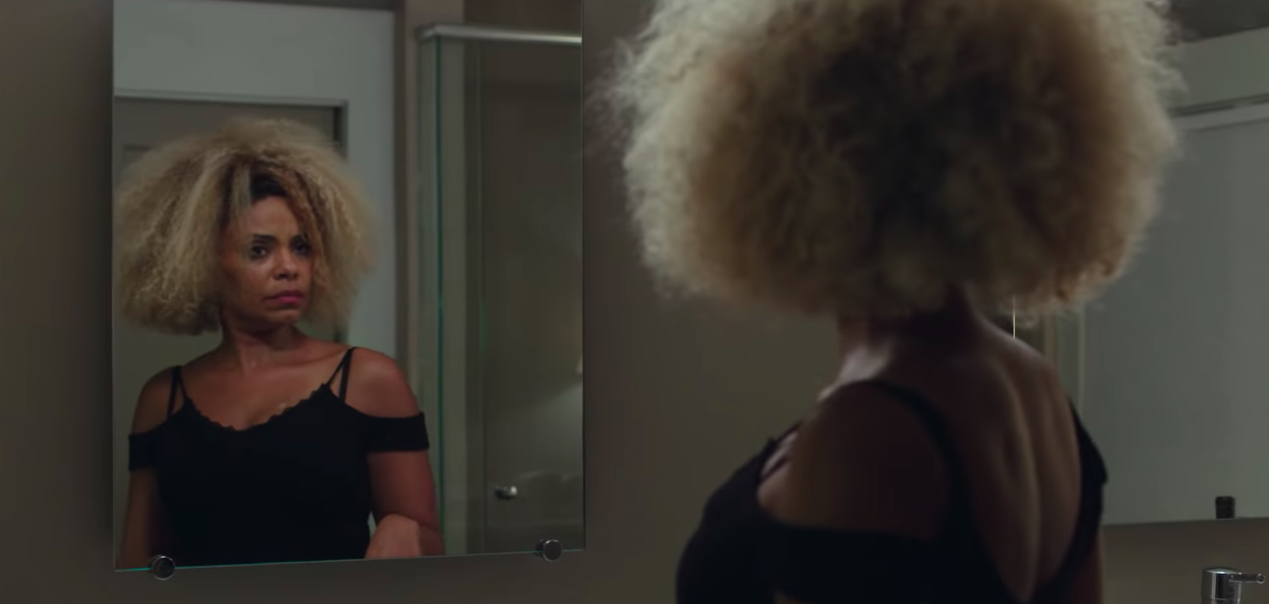An inspirational trailer set hopes high for Nappily Ever After. Netflix’s new movie tells the story of a black woman who shaves her head and finds peace with herself through her natural beauty.
The movie has its moments, but moments are all you get. The protagonist of the film, Violet (Sanaa Lathan), has a breakdown following a breakup, but post-breakup Violet seems to be a silly character more than a sympathetic one.
Violet’s breakup is nothing more than a MacGuffin with no emotional content. We’re treated to sitcom-y, embarrassing scenes where Violet falls around, stumbles over words and has a bizarre and cringeworthy sexual encounter that goes horribly awry.
Violet’s choice to shave her head is compelling — actress Lathan really did shave her head on camera — and at times her explanation for it is interesting. But Violet spends most of her time floundering about, not knowing knowing whether to be professional, successful, beautiful, sexual, frigid or vain.
[Read more: Review: ‘Sierra Burgess Is a Loser’ is just plain disturbing]
And always in the background is a sage man ready to tell her off for such personality traits. A cab driver laughs at her silliness over having her feelings hurt for being rejected. Her father tells her what shaving her head means and sets her on the right path that her evil mother pulled her away from. Her boyfriend tells her how boring she is.
Violet’s love interest serves as a reminder that her professional aspirations are selfish and her desire to have straight hair is a failure of her black identity. Violet has trouble finding herself by shaving her head, because the meaning of her hair is so often defined by others in the film, primarily men. The viewer is left to hope in vain that we can see more of what actually makes Violet her own person.
The film consistently implies Violet is sexist for wanting a family and conforming to traditional gender roles in the workplace. Many times these implications are made by her boyfriend and new love interest, who correct and admonish her assumptions of other women and her desires for herself. Again, there is a strange suggestion that these poor men are being subjected to a woman’s craziness. Violet’s character development is also inconsistent, at one moment raging over a little girl’s (albeit cruel) prank and in the next scene having the perfect mother-daughter relationship with the same girl.
Violet’s most criticized trait is her vanity, yet her worthiness is judged by men’s reactions to her. In the beginning, we know she’s narcissistic because she enjoys men watching her and then is crestfallen to lose that when she shaves her head. But by the end of the movie, men once again turn to ogle her as she walks by with confidence in her natural hair, proving that she once again has worth, not by a personal journey but by how pretty she is.
Nappily Ever After aimed for a strong message, and it should be inspirational. It fills a valuable gap in movies that uplift black women and focus on natural beauty, although it’s not the only modern film to do so. The primary purpose of the film is to show how Violet has been constrained by flat-ironing and controlling her hair, and how she’s freed herself by shaving her head. But undertones throughout the film often lead it to miss the mark on inspiration.
2/4 Shells.



